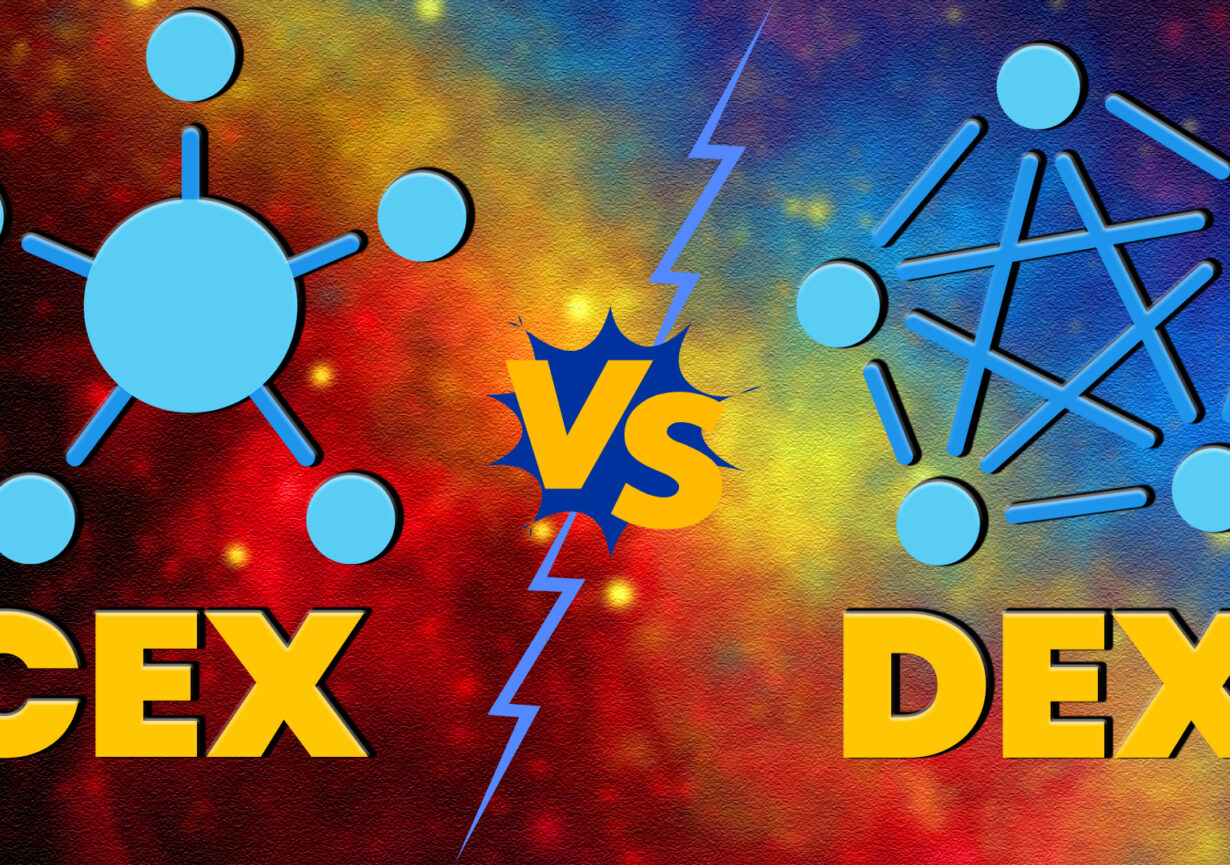- DEX or Decentralized Exchange is a secure way to operate the exchange services.
- CEX or Centralized Exchange is a swift and speedy way to do transactions.
Both DEX and CEX have certain features that suit one’s requirements. It is crucial to fully comprehend the significant differences between CEXs and DEXs before making a decision on which one to use. The choice between a CEX and DEX depends on various factors, including your specific objectives and experience level in the cryptocurrency realm. Each option offers distinct advantages and disadvantages that you should carefully consider.
Know what is DEX?
DEX, short for, “Decentralized Exchange” refers to a type of cryptocurrency exchange that operates on a decentralized platform, typically built on blockchain. DEX utilizes on-chain smart contracts to operate its exchange services.
In most cases, users trade tokens from liquidity pools, with liquidity supplied by other users in exchange for swap fees. A commodity may develop and help drive a DEX but it can, in theory, run itself as long as people supply liquidity to it. Some prominent websites and firms for the same are, Sovryn, AtomicDEX, Blindex, and Liquidity Swap.
Know what is CEX?
Easier for newbies to understand, Traditional Centralized Exchanges (CEX) are operated by a single entity, and hold custody of users’ funds, acting as intermediaries in transactions. CEX offers cryptocurrency exchange services to registered users. Its preliminary service generally matches buyers and sellers with an order book, though a CEX may present its verified users with various crypto products.
For beginners, a CEX supplies the most straightforward way to get started without requiring in-depth knowledge of blockchain infrastructure and tools.
In traditional finance, all businesses are centralized exchanges, for example, banks (Goldman Sachs), stock trading apps (Robinhood), and payment processors (Visa).
A General Comparison of DEX and CEX
| Parameters | CEX | DEX |
| User Friendly | Newcomers to crypto have easy access to conversion tools. | A complex Interface requires interaction with smart contracts. |
| Privacy & Security | KYC/AML is required, and because it is centralized, it is prone to hacks. | Anonymous Trading is decentralized and is safe from hacks. |
| Liquidity | High | Low |
| Fees | Higher fee | Lower fee |
| Speed | Transaction time is fast | Transaction time is steady and slow |
| Trading | Buying and selling are expedited by the exchange | Peer to Peer Trading |
| Statutory Framework | Mostly subjected to licensing or regulation | Not always the case |
Which is More Suitable?
The answer to this isn’t that simple. There are many more factors and parameters to consider. For a new trader, CEX might be the best option available, because it’s easier to navigate through that. But if that new trader is willing to opt for CEX, he needs to glance at other security features and the transaction fees too. Although, it’s not always the case. Sometimes, the DEX fee tends to be more expensive, making Crypto trading more exorbitant.
Similarly, suppose one is looking for speed and accuracy. In that case, CEX is the most suitable choice available, because it’s Centralized and executes work more swiftly, whereas, DEX (decentralized) can make transactions slower.
It is essential to consider the trading preferences and measure every aspect closely, only then you’ll be able to make the right choice.


Leave a Reply